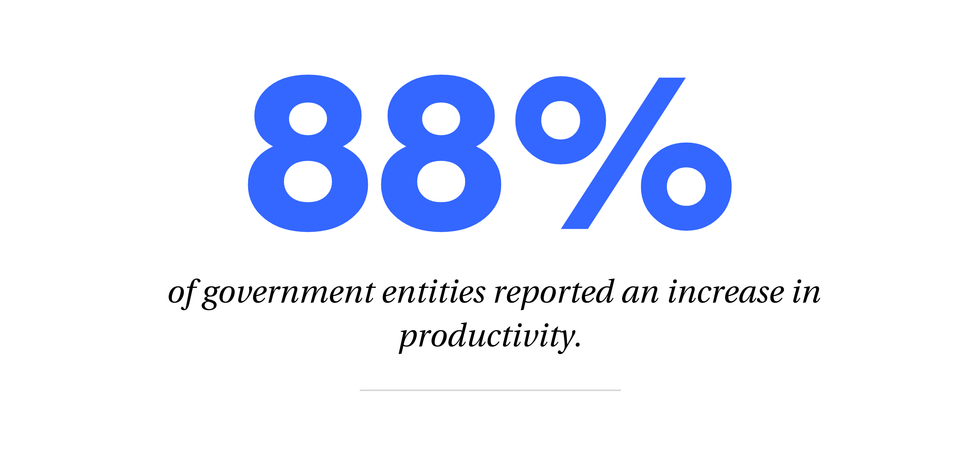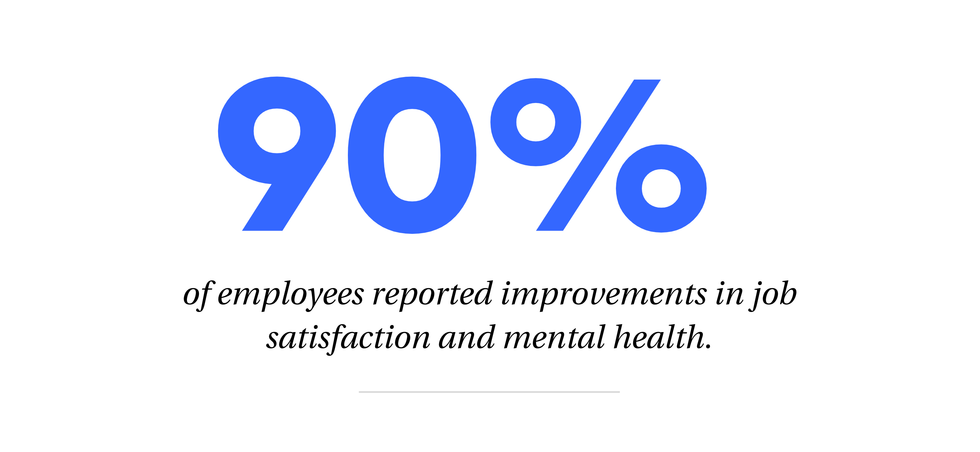Dubai's 4-day workweek trial: Can shorter hours, fewer days improve productivity?
Dubai will test four-day workweek for 15 government organizations from August 12 to September 30

Rana Tabbara
Senior Business Producer
Rana Tabbara is a UAE-based reporter and content creator known for dynamic storytelling, impactful reporting, and high-profile interviews. She interviewed leaders including the UAE Minister of Energy, the Australian Prime Minister, the Saudi Minister of Tourism, the Armenian Minister of Economy, and CEOs of major companies. Rana covered big events like the World Government Summit, LEAP, Cityscape KSA, IDEX, among others. Her previous experiences include The New York Times, CNN Business Arabic, and L'Orient-Le Jour.

Dubai to try out a four-day workweek for government employees this summer.
Shutterstock
Trial includes reduced workday of seven hours, Fridays off.
Trials in Sharjah, U.K. and other countries show increased productivity.
Initiative aims to improve work-life balance.
Dubai is set to trial a four-day workweek for government employees this summer in a bid to improve work-life balance and boost productivity. The trial will run from August 12 to September 30 for employees in 15 government organizations.
This initiative, spearheaded by the Dubai Government Human Resources Department (DGHR), includes reduced workday of seven hours, with Fridays off.
The pilot scheme follows a successful four-day workweek implementation in Sharjah in 2022, as well as similar trials in other countries, such as the U.K.
In the UK, the largest four-day workweek trial saw 61 companies participating, with most pledging to continue the policy permanently.
A survey conducted by DGHR among government employees regarding summer working hours received significant support.
The initiative is expected to lower energy consumption in government offices and promote a better work-life balance, contributing to Dubai’s global competitiveness.
Abdullah Al Falasi, Director General of the DGHR, said “the initiative aims to enhance employees’ quality of life and promote sustainable use of government resources, positioning Dubai as the ideal city for a superior lifestyle.”
The DGHR will monitor feedback and observations throughout the trial period to compile a final report on the initiative’s outcomes and make recommendations for future summers.
Benefits of a four-day work week
Contrary to the belief that reduced work hours lead to decreased productivity, studies have shown that a four-day workweek can actually enhance efficiency. The World Economic Forum (WEF) highlights that with a shorter workweek, employees are more focused and motivated during their working hours.
The necessity to complete tasks within a limited timeframe often encourages better time management and prioritization, resulting in higher quality work being produced in less time, according to WEF.
In a competitive job market, offering a four-day working week can be a significant advantage for businesses looking to attract and retain top talent. The British Business Bank observed that companies implementing this model often see a boost in employee satisfaction and loyalty.
Prospective employees are increasingly valuing work-life balance, and the promise of an additional day off each week can make a company more attractive to job seekers, according to the bank.
Additionally, with one less day of commuting, there is a noticeable reduction in carbon emissions and traffic congestion. The WEF pointed out that fewer commutes contribute to a smaller carbon footprint, aligning with broader corporate sustainability goals and environmental responsibility.
Sharjah's experience
Sharjah implemented a four-day working week for its public sector employees in January 2022. The decision was part of a broader effort to improve work-life balance and employee satisfaction.
Sharjah’s Department of Statistics and Community Development reported that employees became more focused and efficient, completing their tasks within the shorter workweek.
The additional day off allowed employees to spend more time with their families, pursue personal interests, and engage in recreational activities, leading to better mental and physical health, according to a government study presented by the Sharjah Executive Council.
The study also indicated higher levels of job satisfaction and morale. The positive feedback has encouraged discussions about extending the policy to other sectors. Happiness levels increased by 91%, and attendance rates improved by 74%.
Moreover, local businesses reported increased consumer spending on the additional day off, providing a boost to the local economy.
How did other countries do?
Several countries have experimented with a four-day working week, yielding promising results:
Iceland conducted one of the most extensive trials of the four-day workweek between 2015 and 2019, according to the Icelandic non-profit Association for Sustainability and Democracy (ALDA). Productivity remained the same or improved in most workplaces, while employees reported significantly better well-being, lower stress levels, and improved work-life balance. The success of these trials has led to widespread adoption of shorter workweeks in the country.
In New Zealand, Perpetual Guardian, a financial services company, tried a four-day workweek in 2018. The trial was a success, with employees reporting higher productivity, better job satisfaction, and improved work-life balance. Following the trial, the company permanently adopted the four-day workweek, setting a precedent for other businesses in the country.
Spain launched a nationwide pilot program in 2021 to test the viability of a four-day working week. The government provided financial support to participating companies to compensate for any initial productivity losses. Early reports indicated positive outcomes, including increased employee satisfaction and retention, though the long-term results are still being evaluated.
Microsoft Japan experimented with a four-day workweek in 2019 as part of its "Work-Life Choice Challenge." The results were remarkable, with a 40% increase in productivity, a reduction in electricity costs, and a significant drop in paper usage, according to Microsoft.









Comments
See what people are discussing